Write-up
Upon extracting the archive, we come across 5get_it, a 32-bit Windows Dynamic Link Library (DLL). We’ll start with our usual triage of static analysis, running commands like strings. There weren’t many notable strings, but a few log file names and control characters stood out.
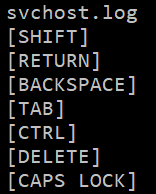
Next, let’s load the program into Ghidra to examine the disassembly and decompilation. The ‘main’ function of the program sets up parameters and dependencies before calling a function, which I’ve renamed main_key_log_func(), on line 37.
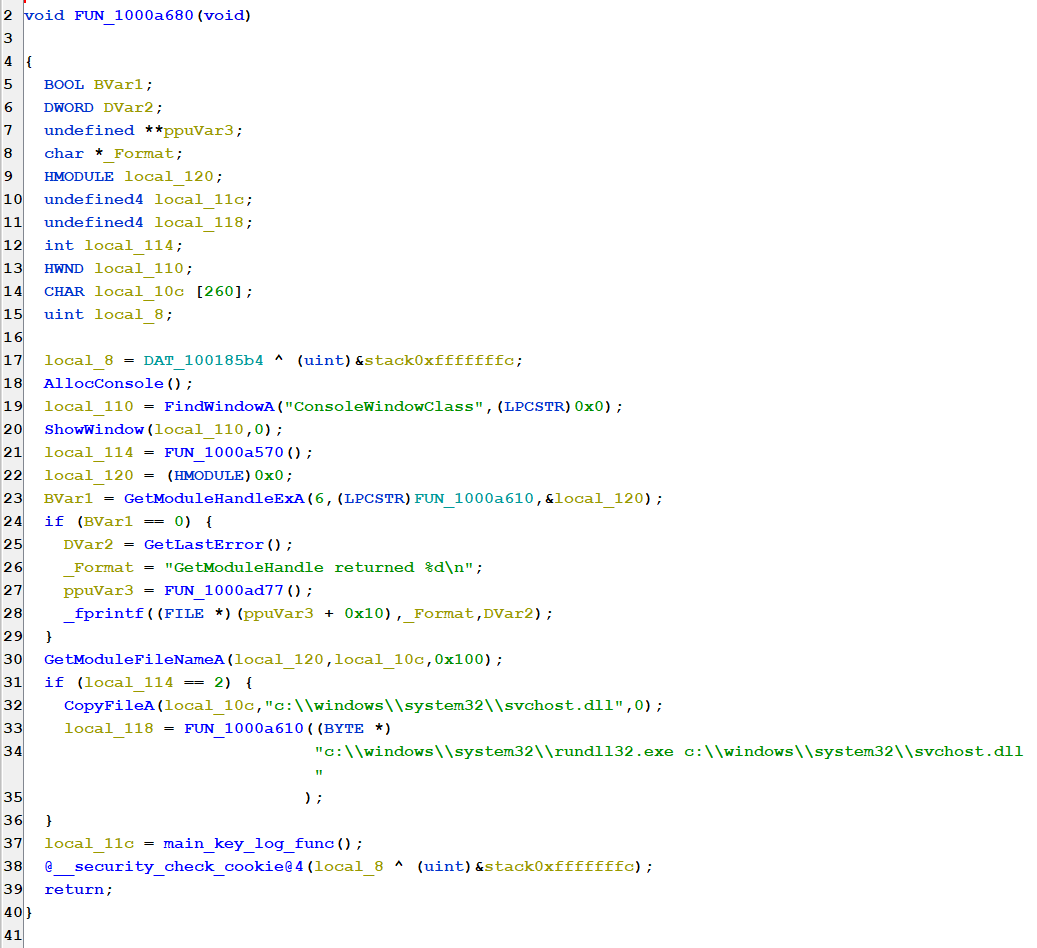
Inside main_key_log_func(), there are two functions of interest that I’ve renamed key_press() and log_key_presses().
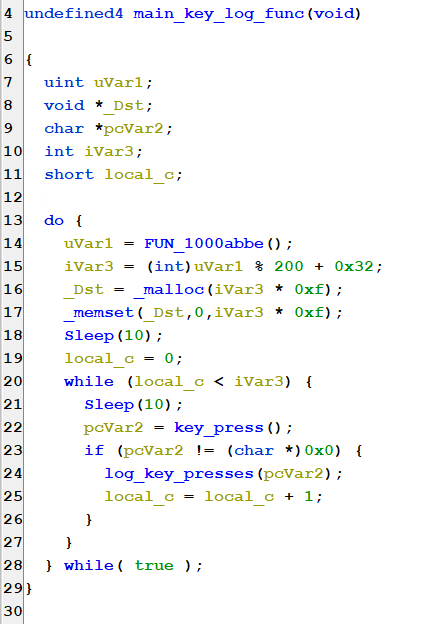
The log_key_presses() function is straightforward, taking the input character and logging it to a file named svchost.log.
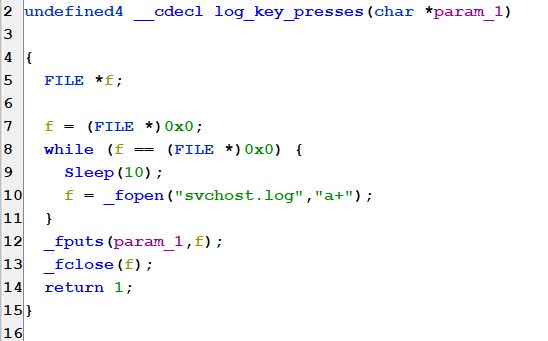
The key_press() function checks which key has been pressed. In some cases, it simply returns the character, but in other cases, it performs checks on global variables.
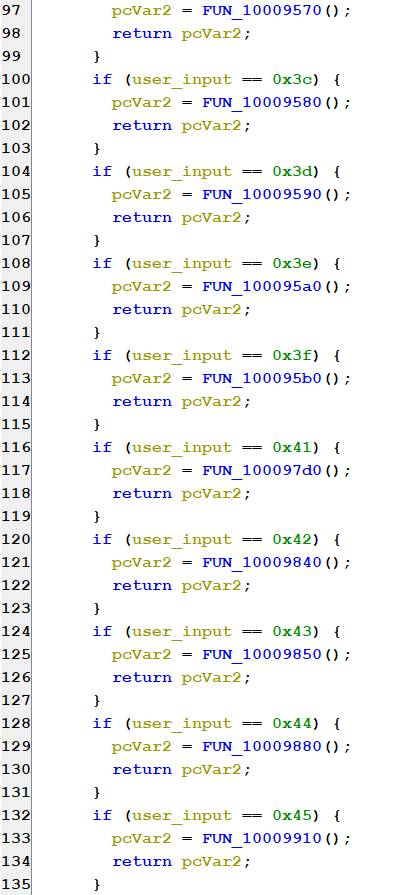
For example, let’s look at the check for 0x44.
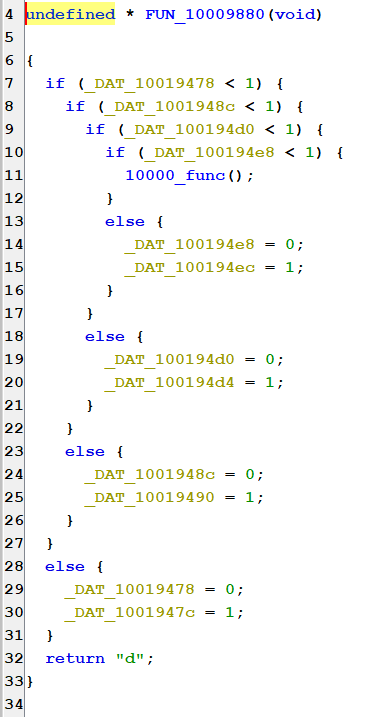
It appears to check if the variables in the data section are set to 0 or 1. Based on this, it performs some logic to change other data section variables.
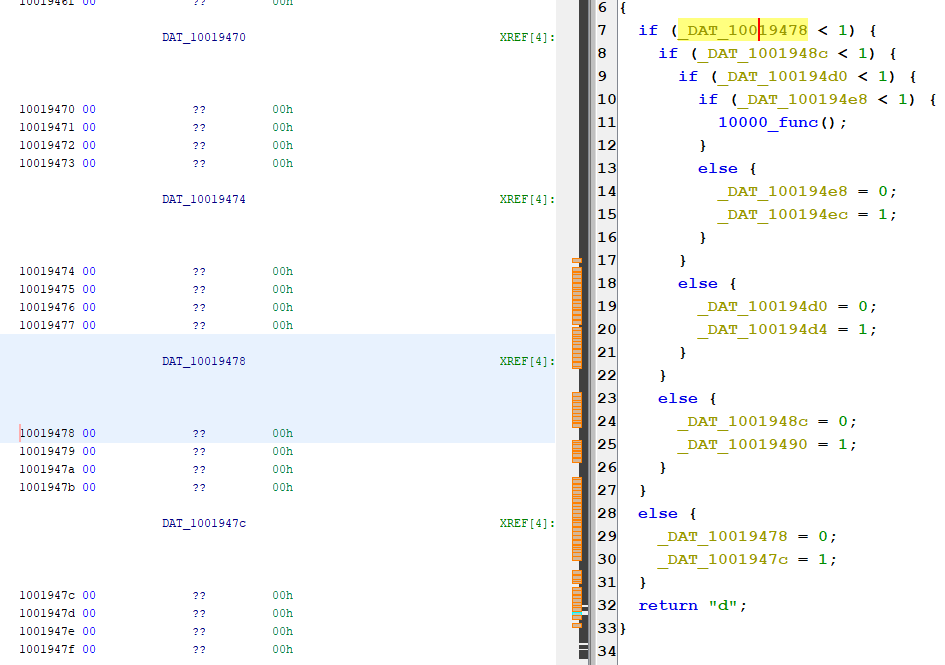
The function I named 10000_func() is particularly interesting. At first glance, it seemed like a flag function due to its length. This function contains many of the references we saw in the conditional statements above.

Let’s use cross-references to see what causes these variables to change from 0 to 1. Starting with DAT_10019460, which changes to 1 in FUN_100009aa0, we see that FUN_100009aa0 requires the key ‘L’.
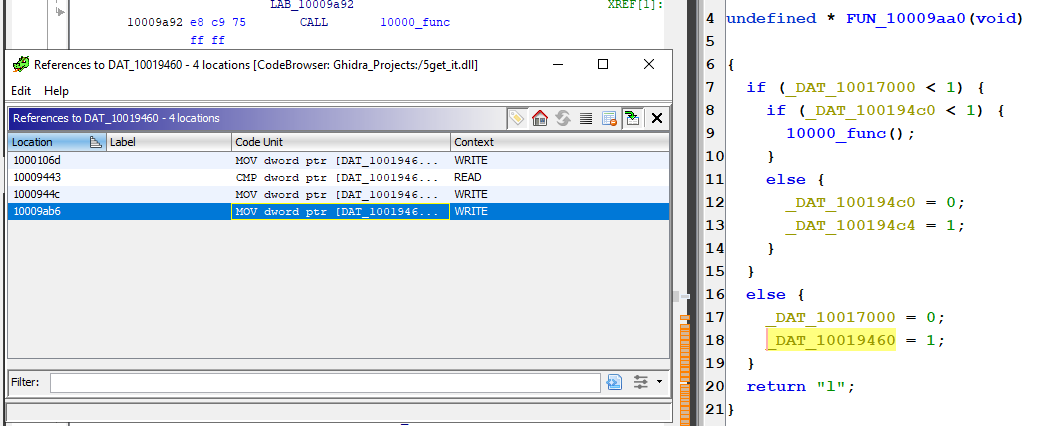
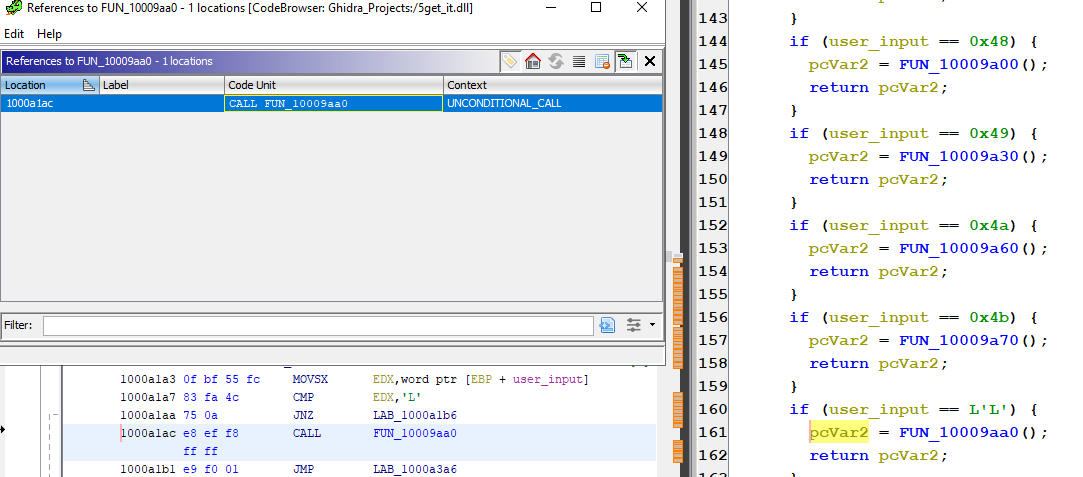
We’ll continue this process, renaming the data references to the keys that need to be pressed.
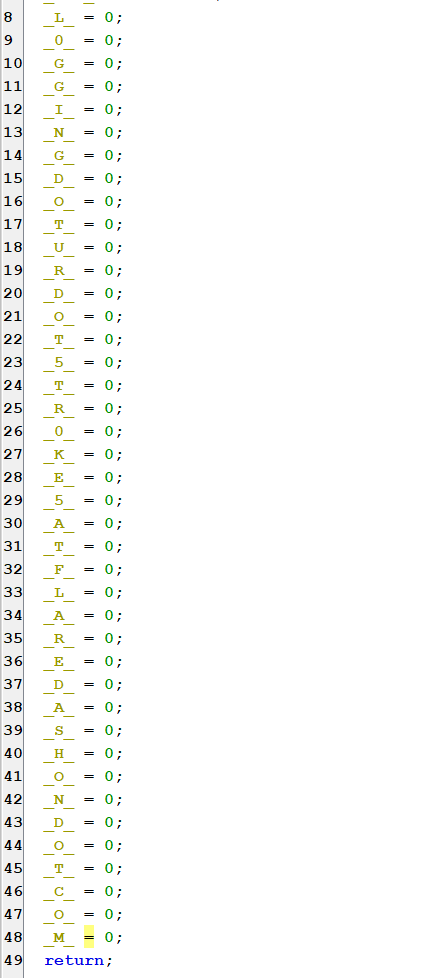
Flag: l0gging.ur.5tr0ke5@flare-on.com














